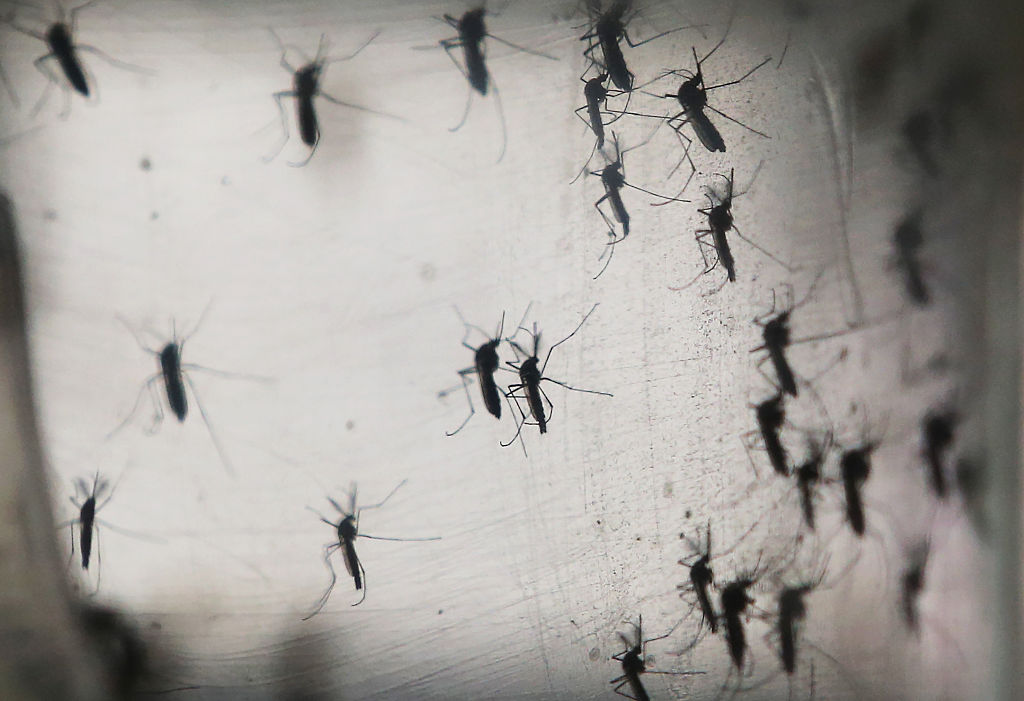Is the Pandemic Affecting the Number of Dengue Cases in Certain Countries? Here’s What a New Study Finds
This ongoing pandemic has led to dramatic changes in humans' mobility, which can change the spread dynamics of other contagious diseases.
Now scientists presenting in PLOS Neglected Tropical Diseases have found that social distancing has resulted in a substantial rise in dengue infections in Thailand. However, no change is detected in either Malaysia or Singapore.
The dengue virus is transferred by Aedes mosquitoes and can lead to severe conditions like headaches, muscle, joint pain, fever, fatigue, and nausea.
Approximately 105 million dengue infections occur each year, with most of the cases reportedly concentrated in Southeast Asia and the Western Pacific region.
ALSO READ: Study Finds Link Between Spread of Dengue and Reduced COVID-19 Transmission

Aedes aegypti mosquitos are seen in a lab at the Fiocruz institute on January 26, 2016, in Recife, Pernambuco state, Brazil. The mosquito transmits the Zika virus and is being studied at the institute. In the last four months, authorities have recorded close to 4,000 cases in Brazil in which the mosquito-borne Zika virus may have led to microcephaly in infants.
Link Between COVID-19 and Dengue Infection
In the said region, COVID-10 has resulted in workplace and business closures, prohibitions of mass gatherings, and in some circumstances, total shutdowns.
This, reports say, paved the way to a natural experiment to approximate the impacts of "reduced human mobility and workplace exposure on dengue transmission."
In the new study, the National University of Singapore's Jue Tao Tim and colleagues investigated case counts of dengue for countries including Thailand, Malaysia, and Singapore through the use of national surveillance data available until the middle of 2020.
The same information was obtained as well, on climate, interventions for COVID-19, and data for overall population census.
Study Findings
In Thailand, the study authors found that social distancing is expected to result in additional cases each month in every 1,000 individuals.
The increase in cases, the study also found, "Largely attributable to increase exposure" in homes than in workplaces, links to more than 2,000 cases additional dengue cases nationwide.
Nevertheless, no substantial effect on dengue spread was identified in either Malaysia or Singapore. In their study, the researchers wrote, "Across country disparities in social distancing policy effects on reported cases of dengue" are reasoned to be brought "differences in workplace-residence structure," with a rise in transmission risk of arboviruses from social distancing "primarily through heightened exposure to vectors in increased time spent at residences."
The study investigators explained that such a result demonstrates the need to understand the impacts of location on transmission risk of dengue under novel populace mixing conditions like those under the social distancing policies.
DON'T MISS THIS: the UK Might Roll Out Antibody Tests With at Least 98% Accuracy by the End of the Year
Earlier Report on the Association Between the 2 Severe Infections
Last month, researchers from different organizations and universities had examined the link between COIVD-19 in another country like Brazil and other factors, which included the occurrence of dengue fever in the region.
In their investigation, the study authors speculated that other "flaviviruses" like Zika and yellow fever might have crossed immunological interactions with SARS-CoV-2, the virus that causes COVID-19, which needed to be explored further.
These, the study authors added, could offer solutions to stop the growth rate of the infection. The researchers also said they especially hope that the vaccine for yellow fever could aid in the prevention of the spread of COVID-19 "if it shows cross immunoreactivity."
Such speculations, though, according to reports on the findings, would need clinical research to prove efficacy until a safe and effective vaccine against COVID-19 becomes available.
IN CASE YOU MISSED THIS: Tricare Issues an Apology Statement After Telling 600k Beneficiaries They've Had COVID-19.
Check out more news and information on the COVID-19 and Dengue on MD News Daily.
© MD News Daily.
